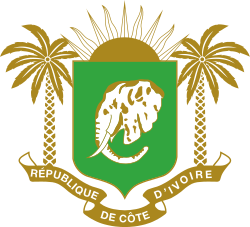 |
|---|
Parliamentary elections were held in Ivory Coast on 25 November 1990, the first since the restoration of multi-party democracy earlier in the year. [1] [2] Although 17 of the 25 legalised parties ran in the election, nearly half of the 490 candidates were from the former sole legal party, the Democratic Party of Ivory Coast – African Democratic Rally (PDCI). [3] The PDCI won a landslide victory, taking 163 of 175 seats with 72% of the vote. Only two other parties (plus two independents) got into the legislature, winning just 12 seats between them. [4] Voter turnout was 42%.
